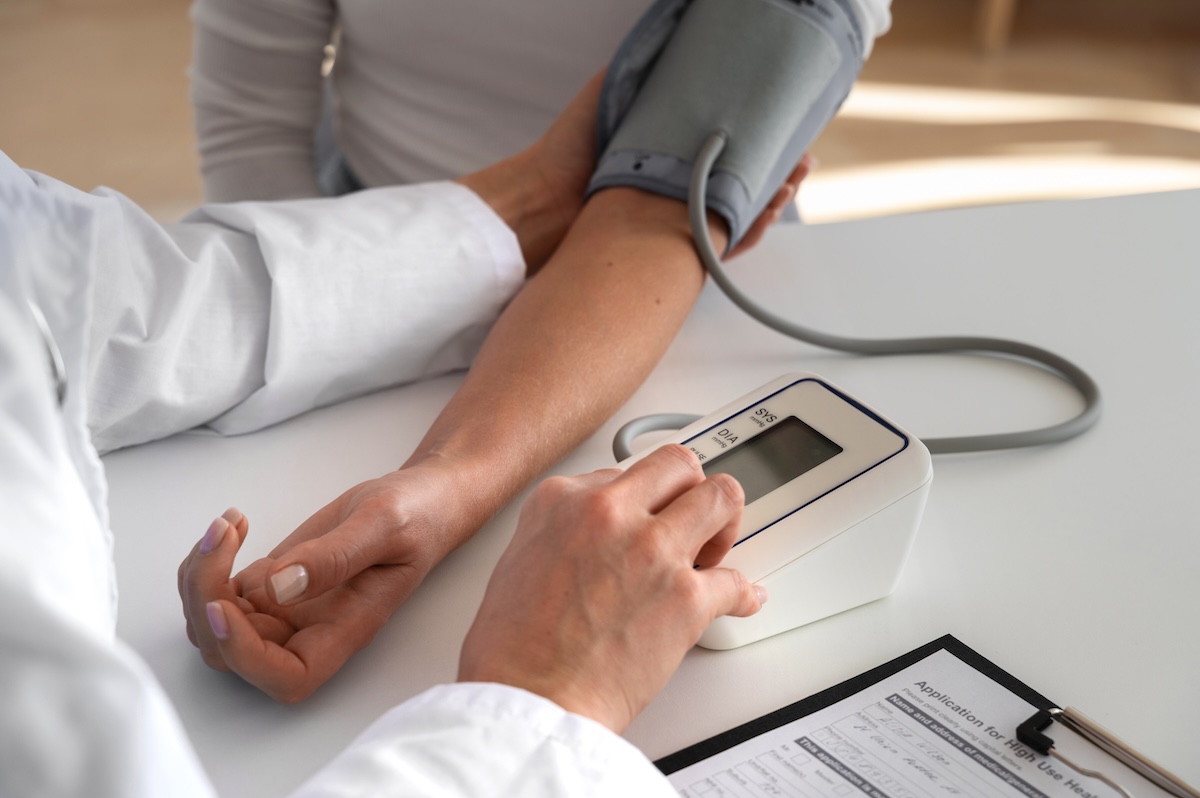Blood pressure is one of the most important indicators of your overall health. It tells you how hard your heart is working to pump blood through your body. When your blood pressure is too high or too low, it can cause problems that affect your heart, brain, kidneys, and other organs. That’s why keeping your blood pressure in a healthy range is so important—no matter your age.

You don’t need to wait until something goes wrong to start caring about your blood pressure. Simple daily choices, from what you eat to how much you move, can make a big difference. In this article, you’ll learn what blood pressure is, what the numbers mean, and how to keep those numbers in a healthy range.
Understanding Blood Pressure Numbers
Blood pressure is measured in two numbers. The top number, called systolic pressure, measures the pressure in your arteries when your heart beats. The bottom number, called diastolic pressure, measures the pressure when your heart rests between beats.
For example, a blood pressure reading of 120/80 means a systolic pressure of 120 and a diastolic pressure of 80. The numbers are measured in millimeters of mercury (mm Hg). Both numbers matter, and together they help doctors understand your heart health.
Normal blood pressure is usually considered around 120/80 mm Hg. But what’s normal can vary slightly by age. As you get older, your arteries become stiffer, which can cause your blood pressure to rise.
Below is a simple chart showing typical healthy blood pressure ranges by age, along with what’s considered low and high blood pressure.
Blood Pressure Chart by Age
| Age Group | Normal Blood Pressure Range | Low Blood Pressure (Hypotension) | High Blood Pressure (Hypertension) |
|---|---|---|---|
| Children (6–12) | 90–120 / 60–75 mm Hg | Below 90 / 60 mm Hg | Above 120 / 80 mm Hg |
| Teens (13–18) | 110–135 / 65–85 mm Hg | Below 90 / 60 mm Hg | Above 135 / 85 mm Hg |
| Adults (19–39) | 110–130 / 70–85 mm Hg | Below 90 / 60 mm Hg | Above 130 / 80 mm Hg |
| Adults (40–59) | 115–135 / 70–90 mm Hg | Below 90 / 60 mm Hg | Above 135 / 85 mm Hg |
| Seniors (60+) | 120–140 / 70–90 mm Hg | Below 90 / 60 mm Hg | Above 140 / 90 mm Hg |
These numbers are general guidelines. Everyone is different, and what’s healthy for one person may be different for another. That’s why it’s important to talk to your doctor about what your ideal blood pressure should be.
What Affects Blood Pressure
Many things can affect your blood pressure, including your weight, diet, activity level, stress, and genetics. For example, eating a lot of salty or processed foods can raise your blood pressure, while regular exercise can help lower it.
Other common factors include smoking, drinking too much alcohol, and not getting enough sleep. Medical conditions like diabetes, kidney disease, and thyroid problems can also have an effect.
Sometimes, your blood pressure can go up temporarily because of stress, illness, or even being nervous at the doctor’s office. That’s why it’s helpful to check your blood pressure regularly—at home or at a pharmacy—and not just rely on one reading.
How To Keep Your Blood Pressure In Check
You don’t need a fancy plan to keep your blood pressure healthy. Most of the time, small and consistent changes to your lifestyle make the biggest difference.
Start with your diet. Try to eat more fruits, vegetables, whole grains, lean proteins, and healthy fats. Foods that are high in potassium—like bananas, spinach, and sweet potatoes—can help lower your blood pressure. Cut back on salt, sugar, and processed foods when you can.
Physical activity is also key. Aim for at least 30 minutes of moderate movement, like walking or biking, most days of the week. Even short walks or dancing around the house can help your heart stay strong and your blood pressure stay low.
Managing stress is another powerful tool. Chronic stress can raise your blood pressure over time. Try simple relaxation techniques like deep breathing, stretching, listening to music, or spending time in nature. Make time for sleep, too. Adults should get around 7 to 9 hours of sleep each night to help the body recharge and regulate blood pressure naturally.
If you smoke, quitting can significantly improve your blood pressure and overall health. Limiting alcohol and caffeine can also help some people manage their numbers better.
When To Get Help
It’s important to check your blood pressure regularly, especially if you have a family history of high blood pressure or other health risks. Home monitors are easy to use and give you a good idea of your trends. Write down your readings and bring them to your checkups.
If your blood pressure is consistently high (above 130/80 for adults), your doctor may suggest lifestyle changes, medications, or both. The goal is to prevent complications like heart disease, stroke, and kidney problems before they start.
If your blood pressure is too low (below 90/60), especially if it causes dizziness, fainting, or fatigue, that can also be a problem. Low blood pressure can be caused by dehydration, certain medications, or underlying health conditions. It’s always worth discussing any unusual symptoms with your doctor.

